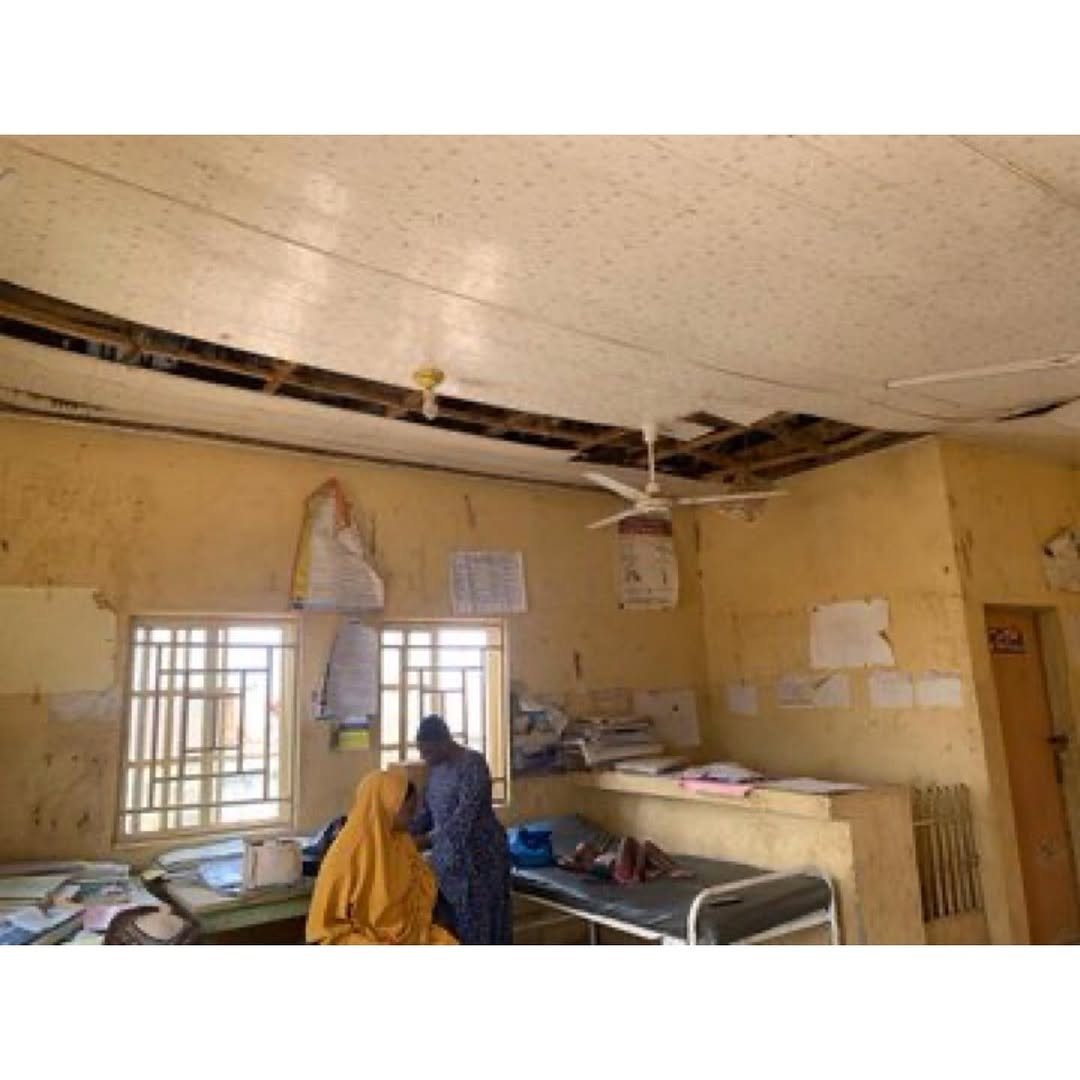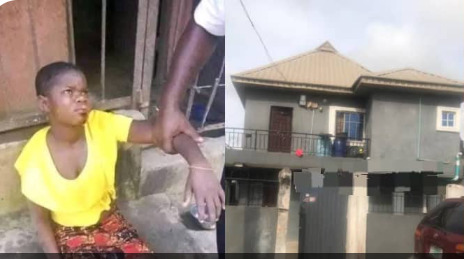
No Beds, No Drugs, No Lights: Kebbi’s Rafin Kirya Clinic in Ruins, Exposing the Rot in Rural Healthcare

In what can only be described as a damning revelation, a recent inspection by civic monitoring group MonITNG has brought to light the harrowing condition of the Primary Health Clinic in Rafin Kirya, a community in Shanga Local Government Area of Kebbi State. The findings, detailed in the group’s latest report, paint a picture not just of neglect, but of outright abandonment, highlighting the deepening crisis of rural healthcare delivery in northern Nigeria.
The report reads like a humanitarian emergency: patients lying helplessly on bare concrete floors in a facility with no beds, no mattresses, and no functioning lighting. The clinic has no stock of essential drugs, no steady water supply, and not even a generator to provide backup power. The building itself is deteriorating, with crumbling ceilings, leaky roofs, and broken windows. During the rainy season, the facility floods. During the dry season, the well — the clinic’s only water source — dries up. In both seasons, the suffering continues.
Residents of Rafin Kirya, a modest rural settlement, say they’ve been abandoned. Women in labor are turned away or rushed to distant facilities, sometimes over 20 kilometers away, due to the clinic’s inability to offer even the most basic maternal care. Patients suffering from preventable conditions often resort to traditional healers, not out of choice, but desperation. Locals have grown accustomed to self-medicating, borrowing remedies from neighbors, or simply doing without treatment altogether.
What makes this even more tragic is that the Rafin Kirya clinic is not a forgotten outpost. It exists on paper. It has a name, a signboard, and is part of Kebbi State’s public health infrastructure. Yet, it exists in form only — not in function. And it is not alone. Across the state, similar stories are echoed in whispers from other communities, revealing a silent epidemic of infrastructure collapse masked by budget lines and policy statements.
According to MonITNG’s data, over N10 billion was allocated to healthcare in Kebbi State in 2023 alone. That number has been touted by officials as evidence of their commitment to improving health outcomes. Yet on the ground in places like Rafin Kirya, the promises remain just that — promises. Despite bold projections in the 2024 and 2025 budgets aimed at rural healthcare improvements, the ground reality stubbornly remains unchanged.
The report also questioned the efficacy of international donor funds and federal initiatives like the Basic Health Care Provision Fund (BHCPF), the World Bank-backed “Save One Million Lives” program, and other federal health interventions that have been operational in the state. According to MonITNG, there is no trace of these funds being utilized in Rafin Kirya. There are no drugs from BHCPF stockpiles, no staff trained under donor programs, no evidence of solar installations, and no infrastructural renovations tied to any intervention.
“The people of Rafin Kirya deserve clean water, functioning facilities, and dignity in healthcare. Enough of the promises. Let action begin today,” the group said in a strongly worded statement addressed to the Kebbi State Government, the National Primary Health Care Development Agency (NPHCDA), and the State Primary Healthcare Board.
The inspection has sparked outrage online, with Nigerians across social media platforms expressing shock at the images and videos shared by MonITNG. In one particularly harrowing clip, a frail elderly man lies on the floor in a dark ward, lit only by a cell phone flashlight. In another, women cradle their infants as they wait outside the clinic, shaded under trees because there is no waiting area inside.
Healthcare professionals have also weighed in, describing the situation as not just unacceptable but dangerous. A nurse who asked not to be named described how colleagues refuse postings to rural clinics like Rafin Kirya out of fear and frustration. “What am I going to do in a place where there are no drugs, no lights, and no way to save lives?” she asked. “We swore an oath to care for people — but how do you care with empty hands?”
The issue of rural healthcare collapse is not unique to Kebbi, but the case of Rafin Kirya has become emblematic — a brutal reminder of what happens when budgets are celebrated without implementation, and policies are drafted without monitoring. It raises uncomfortable questions about accountability, governance, and the value placed on the lives of Nigerians living outside urban centers.
Despite repeated calls from advocacy groups, the Kebbi State Government has yet to release an official statement in response to the report. Calls to the State Primary Healthcare Board have gone unanswered, while community leaders say their pleas have been met with silence. One resident, Malam Bala, speaking in Hausa, said, “We voted. We hoped. We prayed. But now we are dying silently. If this is what healthcare means to them, then we are not part of their Nigeria.”
As the country prepares for more elections and leaders gear up to launch new policy initiatives, Rafin Kirya stands as a chilling monument to broken systems. The community doesn’t ask for luxury. They’re not asking for cutting-edge medical technology. They’re simply asking for beds, basic medication, light, and water — the bare minimum of what healthcare should mean.
MonITNG is now demanding an independent audit of healthcare spending in Kebbi State, including the deployment of donor and federal funds. They are also calling for immediate emergency support to Rafin Kirya, including the provision of mattresses, basic drugs, solar power units, and water access. “This is not political,” their spokesperson said. “This is about human lives. And every day we delay is a day someone dies needlessly.”
Whether those in power will listen remains uncertain. But what is clear is that the silence and suffering of Rafin Kirya has now found a voice — and it is a voice demanding justice. The crisis in Kebbi’s rural health system can no longer be tucked away in remote villages. The world is watching. And history will remember whether leaders rose to the challenge, or once again, looked away.


